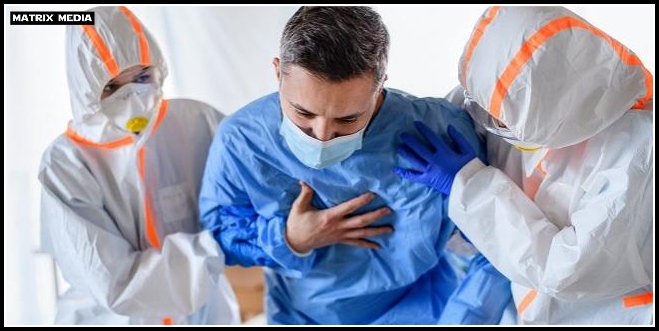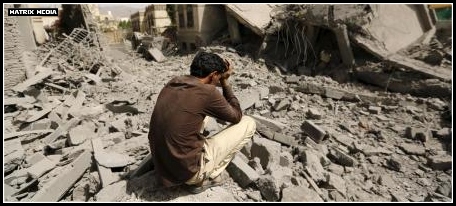Durdana Najam

If the Spanish flu outbreak back in 1918 is any lead then we must be prepared to endure the second or even third wave of the COVID-19 induced influenza. Then, successor waves of the Spanish flu killed more people than the first.
The Severe Acute Respiratory Syndrome (SARS) outbreak in 2003 was as lethal in the spread, high mortality rate and lack of a known cure as is COVID-19. SARS indeed taught the states to be prepared for timely intervention in case another pandemic strikes.
Eventually the 1969 International Health Regulations—the international legal framework that provides the basis for surveillance and containment of an international outbreak— was also revised in 2005 as infectious diseases were being viewed in security terms.
That is why the World Health Organization (WHO) went on to issue three pandemic preparedness guidelines—in 2003, 2005 and the last one in 2009.

WHO 2009 Guideline

Influenza pandemic, according to the WHO 2009 guideline, is a recurring event that can have severe consequences on societies worldwide. A pandemic hits the world at an interval of 10 or 50 years with varying severity. It is difficult to predict the timing and the impact of the influenza pandemic. The least societies could do is prepare themselves for a response that could mitigate the adversarial effect of a disease that could spread uncontrollably.
The guideline released in 2009 encourages the ‘Whole-of-Society approach to prepare for pandemic influenza.
It identifies five actors, each having a specific and significant role to play. As a natural leader government would be required to carry out institutional coordination through legislations, policies and resource generation. The health sector, comprising both the public and the private entities, would contribute to the preparedness activities through the dissemination of epidemiological, virological and clinical information about the pandemic. This information would be used to reduce the spread of the virus and its attendant morbidity and mortality. The diverse non-health sectors would provide essential services to reduce the social, economic and health impact of the pandemic. The role of the civil society would be to provide the auxiliary support by raising awareness about the disease, counter rumours, and liaise with the government during an emergency. Lastly, families and individuals can help in limiting the spread of the virus by covering cough and sneeze, hand wash and voluntary isolation.
This is how the WHO had advised the world, its 194 member countries to prepare themselves lest they are caught unprepared by a pandemic.
Misplaced Criticism of WHO
Despite routinely issuing warnings, WHO faced a storm of retribution as the world leaders blamed it for not timely partnering with China to control the virus from spreading when it first erupted there, and for not preparing societies for a pandemic that could chase out any modern and advanced medical technology. Once overwhelmed with the COVID19 proliferation, a frustrated US president Donald Trump even threatened to punish WHO by cutting down its budget.
This is a classic case of projection i.e. trying to evading a difficult situation by blaming the opposite party to have created it. This happens when states fail in timely reacting to and positioning themselves for times of crisis.
They also look for excuses to deflect from some bitter ground realities. Billions of dollars had been spent on wars and destruction. The toll has continued to rise since 9/11, or precisely since terrorism has become the talk of the defence lexicon of the western countries led by the US. From Afghanistan to Iraq to Syrian to Libya and Yemen the cover lent to each invasion was emancipating their citizens from the authoritarian policies of their governments. It did not matter if, in this so-called freedom mission, the misery of untold proportion befell on those countries.
Millions of people have died off explosives, off hunger and poverty in the squalid camps and displacement centres. Scores of desperate migrants have lost lives in seas and deserts while attempting to flee hunger and infections. Other than whimpers from the increasingly weak and Americanised United Nations and those influenced by the formers’ world order, there was hardly any objective reasoning to stop people from dying unnecessarily. One can control a pandemic through social isolation, but countering a superpower on the imperial mission has been a difficult option.

That is why before holding WHO in scorn, world leaders need a moment of retrospection about time, resources and intellect spent on the health sector at a global level would not be a bad idea. Why would the IMF or the World Bank not make their funding to the third world countries and that in Latin America conditional to building strong social infrastructure? Why has there always been a premium attached to debt from the international financial institutions? A premium that could only be paid from the sweat of the labourers who had to toil harder to pay the rising electricity bills and the inflation hit food items because the IMF restructuring program’s first snarl is usually reserved for the energy and food sectors of the debt seeking country.

It was in fact not the WHO but the misplaced priorities and the insanity to empower the lesser dogs in the third world and the Latin American countries for commercial incentives that had made the world look in a shambles and helpless in the face of a deadly virus, while all the scientists and technological experts wring their hands in despair and lack of preparedness.
Now, caught unprepared and with no cure in sight, prevention is the only way to stop COVID-19 from spilling over to an uncontainable situation. Most of the people are not dying because the virus is adamant to kill the host body. The majority of the deaths happen because the healthcare facilities are not enough to accommodate the hordes of infected people. There is a dearth of beds, doctors, intensive care units and equipment.
It is indeed about time to look beyond geopolitical and commercial incentives, as the world remains partially shut down for what is being called a long overdue repair.
The writer is a policy analyst and a political commentator. She writes on public health issues. She can be reached @durdananajam on twitter.




